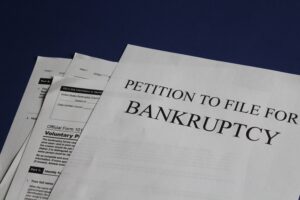Bankruptcy and Your Credit Score

The reason for holding off? They’re worried about the impact on their credit score.
On one hand, this anxiety is understandable. Your credit score dictates whether you can buy a home, get a personal loan, and receive other advantages that accompany a good credit rating. On the other hand, if your debts are in arrears, your cards are maxed out, and creditors are calling, your score has probably sustained enough damage. Bankruptcy can help you overcome that crushing debt burden and rebuild.
What Happens to Your Score After Bankruptcy?
It’s difficult to predict exactly how much your credit score will decrease after you file, although the studies below can give you a general idea.
- According to MoneyCrashers, your score could fall by 160 to 220 points, depending on what chapter you file.
- Using mock scenarios, FICO found that someone with a 780 score could lose around 240 points while a person with a 680 score lost 150.
It appears that the higher your score is at the time of filing, the harder your credit will be hit by a bankruptcy. In addition:
- If you file for Chapter 7, the information will stay on your credit report for up to ten years after discharge while the discharged debts should fall off the report no more than seven years after any final payment or activity.
- After you file a Chapter 13 bankruptcy, it will be visible on your credit report for up to seven years. The accounts you included in it should also disappear seven years from the date you filed.
Now For Some Good News About Bankruptcy and Your Credit Score
While bankruptcy can appear on your credit report for years, the impact will diminish as time passes. Once you get your discharge and your finances are in good shape once again, focus on rebuilding your score by:
- Applying for a low-limit credit card. You will probably have to deal with higher interest rates at first, but as your credit improves, you will eventually qualify for better terms.
- Getting a secured credit card if you can’t get approved for a traditional one.
- Paying all your bills on time.
It’s more than possible to enjoy a good credit rating after bankruptcy: many people have done it. Once you fulfill the terms of your bankruptcy and demonstrate financial responsibility with new credit, you’ll be on your way
Contact a California Bankruptcy Attorney
If the pandemic or another crisis has left you unable to both pay your bills and meet your living expenses, reviewing your options with a California bankruptcy attorney can help. At Hedtke Law Group, we understand what you are going through and will give you the right advice for your circumstances.To schedule a confidential consultation, call us today at (909) 579-2233.